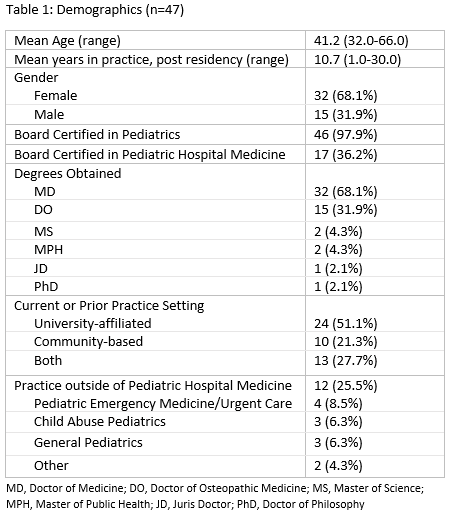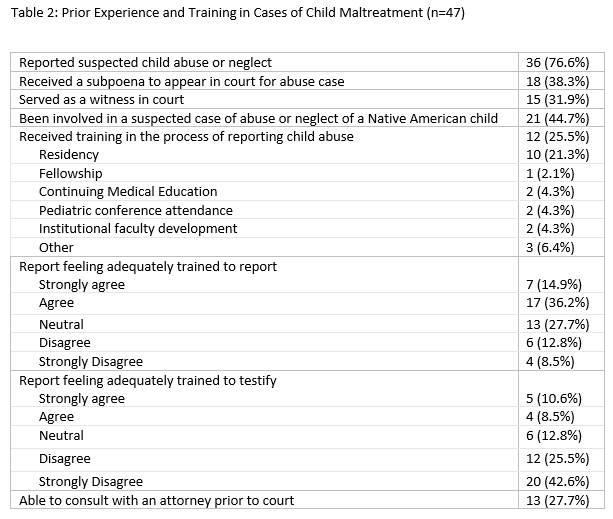Background: Pediatricians are mandated by law to report cases of suspected child abuse. The National Association of Children’s Hospitals and Related Institutions 2006 guidelines on the hospital’s role in child maltreatment note that children’s hospitals “are the undisputed leaders in providing medical care to abused and neglected children” and outline that hospitals should ensure that medical staff is trained to comply with mandatory reporting requirements.1 Yet, there is a lack of research on pediatric hospitalists’ experiences with, perspectives on, and involvement with the medical legal system. This study sought to evaluate pediatric hospitalists’ experience with and training in the legal system in cases of child maltreatment.
Methods: A cross-sectional electronic survey was distributed to pediatric hospitalists in Arizona during June 2022. The 8 medical centers with inpatient pediatric acute care units in Arizona were identified. Pediatric hospital medicine division chiefs were contacted to invite their division to participate in the study. One pediatric medical center did not respond, but the other 7 agreed to take part. The electronic survey was sent to the division chiefs via email to be distributed to their respective division members. All attending physicians who spend at least 0.2 full time equivalence in the pediatric acute care unit and/or newborn nursery were included. Survey questions explored demographics, prior training in the legal process, and prior experience with reporting child maltreatment and appearing in court. Descriptive statistics were performed. Wilcoxon rank-sum tests were used to assess associations between years post-residency training and attitudes about adequacy of training in the legal process.
Results: Forty-seven pediatric hospitalists completed the survey (50.0% response rate). Respondents were a mean of 10.7 years post-residency training, 68.1% female, and 25.5% had current or prior practice outside the field of pediatric hospital medicine (Table 1). 76.6% responded they had reported a suspected case of maltreatment, 44.7% were involved in a case involving a Native American child, 38.3% received a subpoena to appear in court, and 31.9% served as a witness in court (Table 2). However, the majority (74.5%) of respondents had never received formal training in the legal process of reporting child maltreatment. While 51.1% reported they felt adequately trained to report child maltreatment, only 19.1% felt adequately trained to testify in court (Table 2). Those with more years of experience post-residency training were more likely to feel adequately trained to report maltreatment or testify in court (P < 0.05).
Conclusions: The majority of pediatric hospitalists have reported suspected child maltreatment and feel adequately trained in the process. However, while over 30% have testified in court, most do not feel adequately trained to do so. Future efforts are needed to identify gaps in pediatric hospitalists’ education and meet their training needs to better equip them in caring for and supporting patients with suspected maltreatment.


